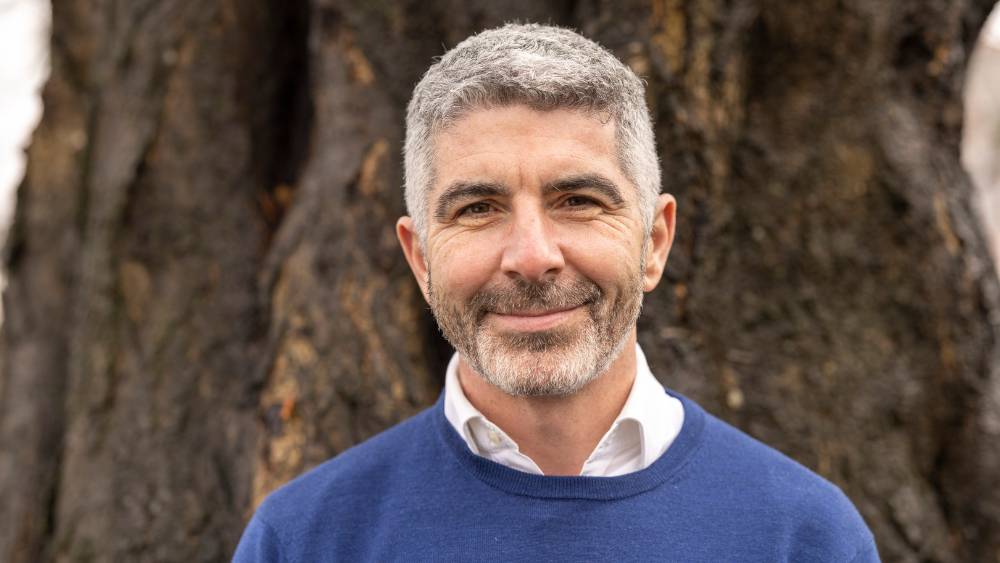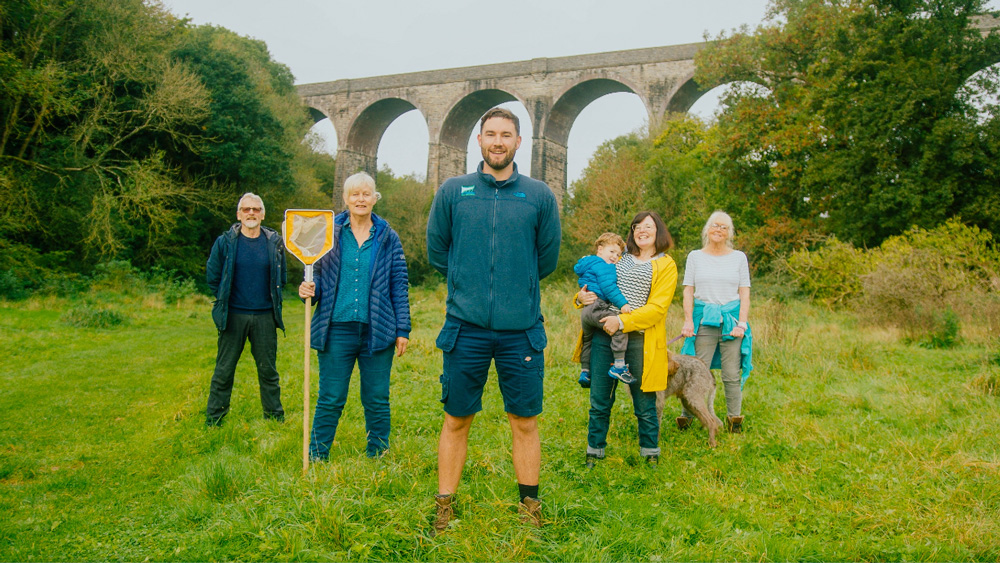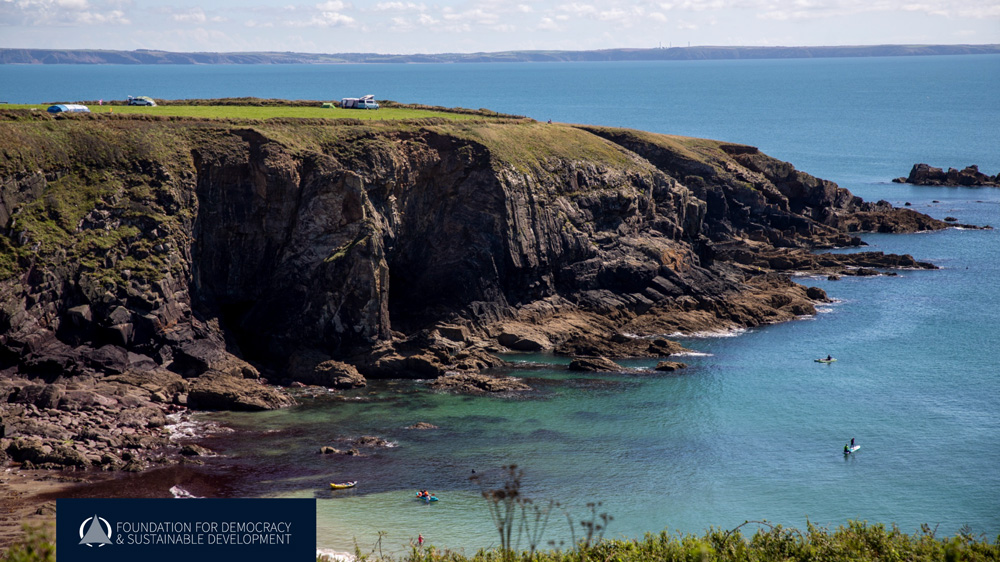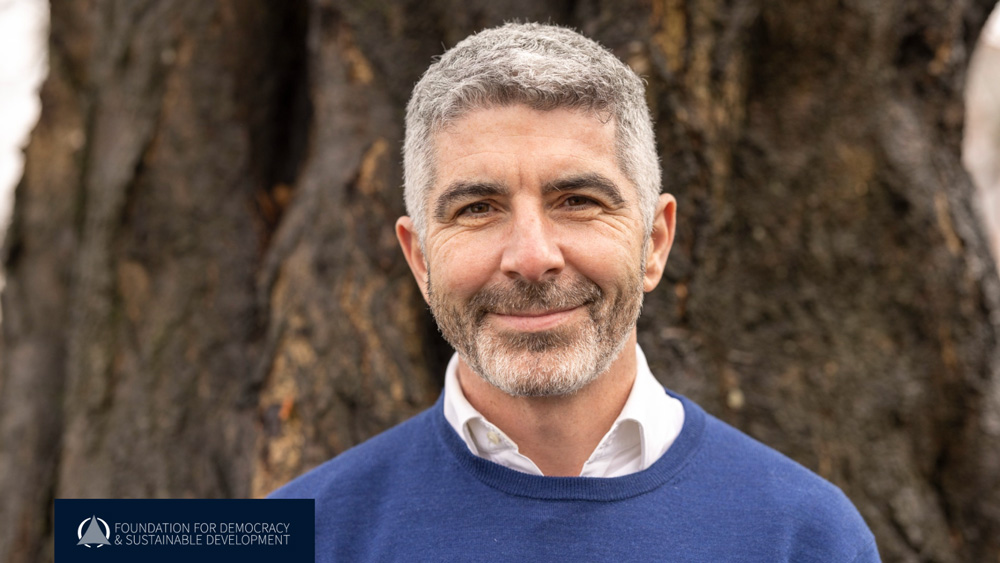Wales’ Well-being of Future Generations Act is about improving lives now, next year, in 25, 50, 100 years into the future—and beyond.
By Derek Walker, Future Generations Commissioner, Wales

Imagine the youngest person you know. Now picture the quality of life you’d want them to have over the next 50 years. How will the things you do today make that good life a possibility?
What does their life look like in 2075? Are they surrounded by biodiverse and resilient green spaces? Are they healthy and equipped for a life well-lived? Is there fair work? And are they living in vibrant, connected, equitable communities which value culture, nature and well-being?
In Wales, we’re working to ensure that vision of the future through our Well-being of Future Generations (Wales) Act. It’s a law that protects people now, and those born in the future, so they have what they need to thrive for their whole lives, and leave behind a liveable planet.
The WFG Act requires public sector bodies, including Welsh Government, local authorities and health boards, to consider the long-term impacts of their decisions. This pioneering legislation gives Wales the ambition, permission and legal obligation to improve our social, cultural, environmental and economic well-being.
And it’s my job as Future Generations Commissioner for Wales to ensure that organisations are acting today for a better tomorrow. My new strategy, Cymru Can, places a focus on ‘implementation and impact’ and has been well-received. Informed by eight months of involvement with people across Wales, and the bodies that we need to influence, our priority is that our Law works harder and faster, so that we can see tangible improvements in the lives of people in Cymru, now and tomorrow.
To achieve this, we’ve chosen five new missions. These are:
- Implementation and Impact;
- responding to the Climate and Nature emergencies;
- transforming how we protect and improve our Health and Well-being;
- enhancing our Culture and Welsh Language;
- and working towards A Well-being Economy.
Since the introduction of the Act in 2015, we’ve seen shifts to a greener transport strategy, a progressive curriculum, and a new way to define prosperity that focuses on people and planet.
There have been inspiring examples of the legislation being used to inform major decisions. For example, the law helped scrap the M4 relief road which would have burdened future generations with £1.4bn of debt, and compromised nationally important habitats for nature. There has also been the development of Welsh Government’s landmark sustainable transport strategy that’s investing in an active travel system that supports health and nature.
Cymru Can
We can see the spirit of the Act on a local level, too. Restore the Thaw is a project working to restore nature networks in and around the River Thaw in the Vale of Glamorgan, connecting local wildlife, landowners and the community with the land, and planting 40,000 trees.

Câr-y-Môr, Wales’ first community-owned, regenerative seaweed and shellfish farm based in St David’s, Pembrokeshire used the Act to successfully secure a long-term license to produce sustainable Welsh seaweed and farm native oysters and mussels off the coast at Ramsey Sound, while also investing in alternatives to plastic.
Co-creation
Others are joining the movement, including The Democracy Box by Omidaze, supporting young people aged 16-25 as co-creators to explore and develop new ways to explain the basics of our democracy. Involving young co-creators is crucial to driving positive social change. Our partnership with them resulted in enlightening conversations and content which highlighted the Act for all ages.
Their new report, Beyond the Ballot Box, discusses how a lack of joined-up and easy-to-access information about our democracy has created a knowledge gap for a majority of the population, leading to disillusionment, distrust and disengagement. They’re calling on Welsh and UK governments to commit to long-term investment for year-round democratic education and information for everyone.
National appetite
Major cultural organisations like the Football Association of Wales, while not covered by the legislation, are developing a sustainability strategy towards becoming the first sustainable football association and Principality Building Society runs a Future Generations Fund to give young people across Wales access to healthy food, technology and school equipment to help them succeed in education via grants of £5,000, while also helping charities and community groups which help young people with financial education, careers skills, mental health services, and environmental projects.
Despite this increasing good practice at national and local levels, the Act is still not being implemented at the pace and scale needed.
We are living in challenging times with the cost of living and energy crises, and now the cuts to funding from the latest Welsh Government budget, hitting already struggling public bodies hard.
Living and operating in this period of polycrisis is hard, and often we can’t see the forest for the trees – but thinking long-term has never been more important.
We know real change happens on the ground, in the hearts and minds of people across Wales. If we are to achieve the aspirations of the Well-being of Future Generations Act, our public sector bodies and others must share ideas, and help each other tackle the root causes of issues. They must involve people in decisions that affect them and consider long-term and preventative thinking as standard practice.
Our local councils, health boards, fire and rescue services and national parks are having to make difficult decisions daily. Adopting future generations approaches will help the different areas of public services work better together, and ensure that people across Wales, now and in the future, experience economic, environmental, social, and cultural benefits in their everyday lives.
On this day, Dydd Gŵyl Dewi (St David’s Day), our national day on March 1, we celebrate the patron saint of Wales whose story encourages us to ‘gwnewch y pethau bychain’ (do the little things). We can’t underestimate how everyday deeds can create big change. If we continue to transform how we work in Wales by truly embracing the Act, we have to have our eye on those who’ll be celebrating Dydd Gŵyl Dewi in 2075.
Cymru Can go further and create the urgent change needed for Wales to be a better place to live.



